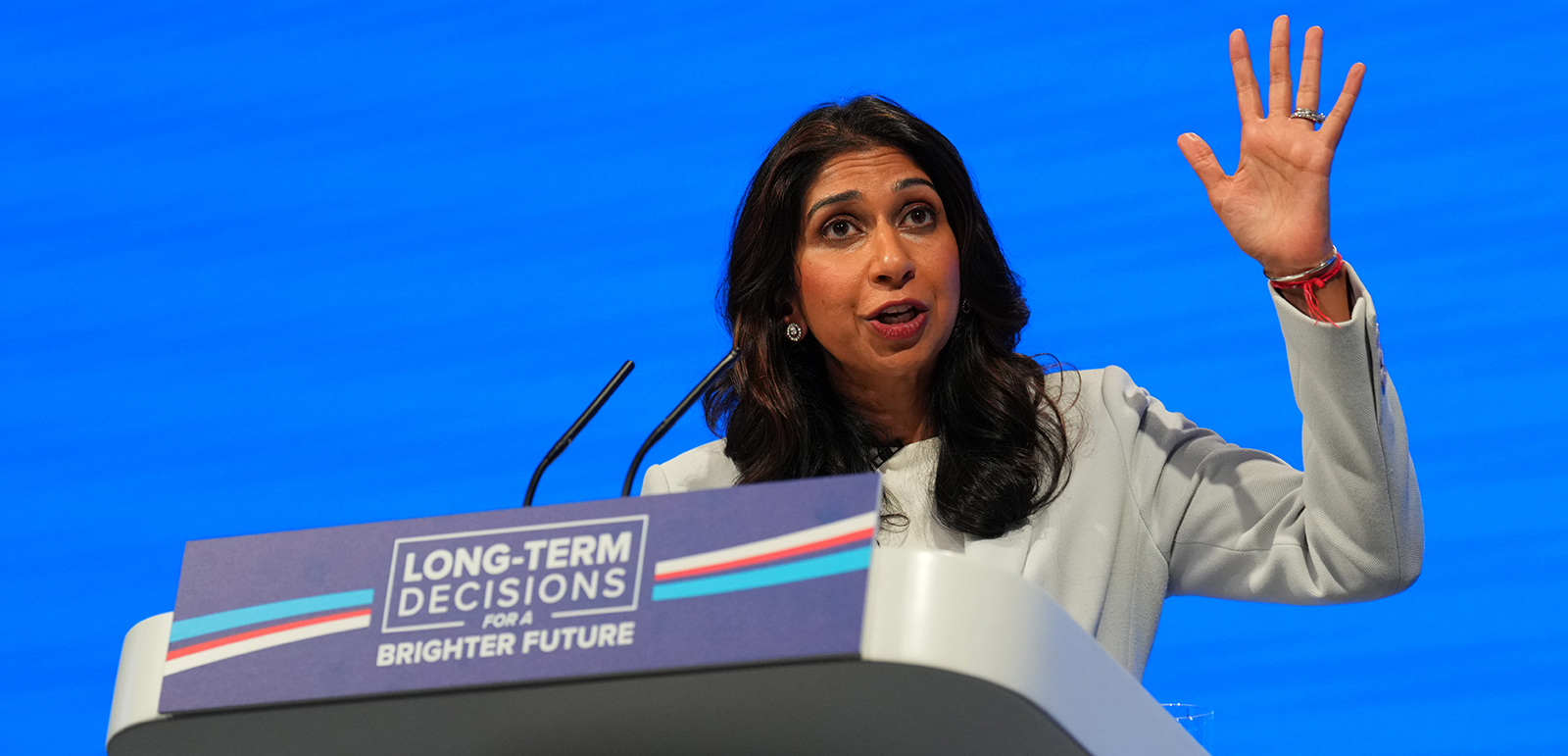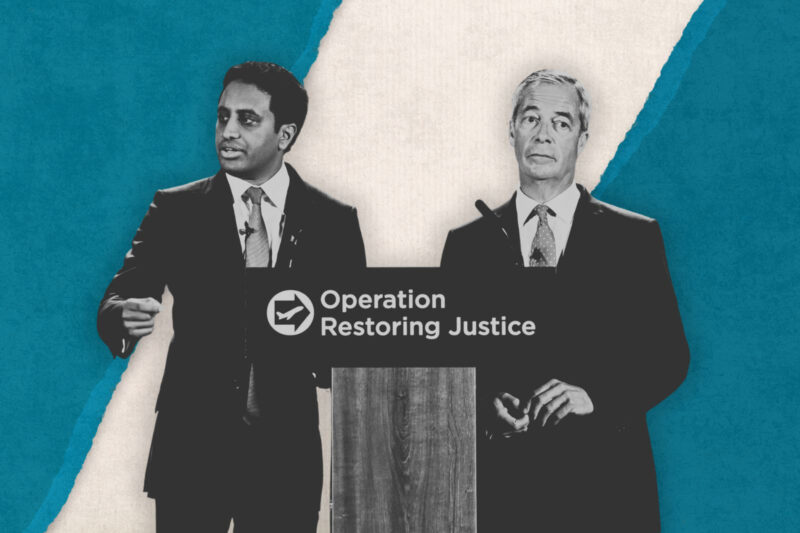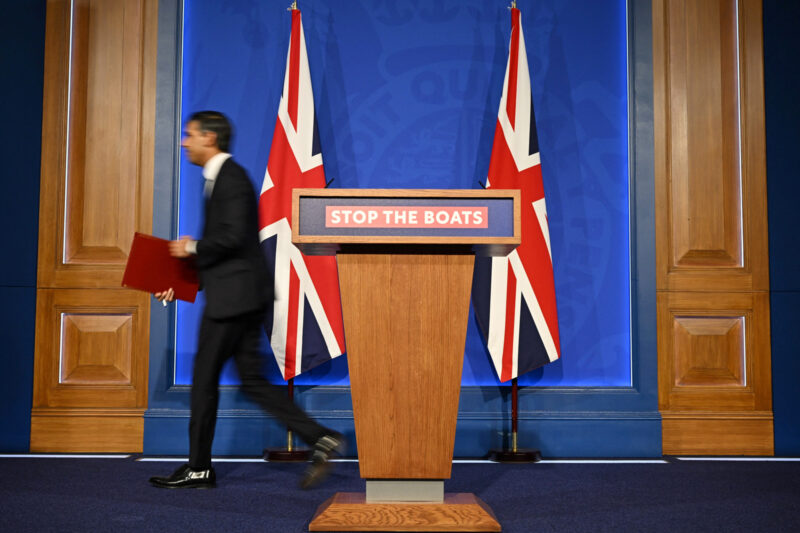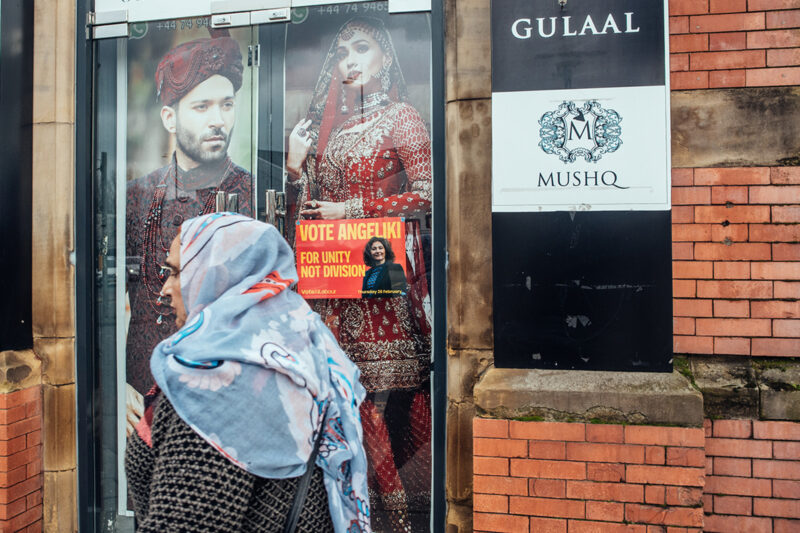Suella Braverman is poisoning our society with the politics of fear
Distorting facts to demonise immigrants, the home secretary is sowing dangerous seeds of division and failing to uphold the legacy of her own party

Politicians who cannot win by other means often resort to dividing society by promoting fear and hatred of another group, whether Jews in 1920s Germany or Commonwealth immigrants in 1960s Britain. I was 17 years old when Conservative MP Enoch Powell gave his notorious “rivers of blood” speech, and have never forgotten how it fanned hatred against people like me.
Sadly, Conservative Home Secretary Suella Braverman is now following the same strategy. Two of her recent speeches merit close reading to see how she aims to frighten by distorting reality.
In September she spoke in Washington DC to the American Enterprise Institute (AEI). Then in October she addressed the Conservative Party Conference in Manchester. Both speeches are seriously problematic.
Her AEI speech attacks the 1951 United Nations Convention Relating to the Status of Refugees and its 1967 protocol in a way I consider immoral.
I will never forget how at the 1938 Evian Conference, 32 “civilised” countries closed their doors to Jewish refugees from Germany. While the UK celebrates taking in nearly 10,000 children via the Kindertransport, we refused to take their parents, many of whom died in the Holocaust. Feelings of guilt were a big factor in agreeing the Refugee Convention, which is needed just as much today by those who, in its words, have a “well-founded fear of being persecuted for reasons of race, religion, nationality, membership of a particular social group or political opinion”.
Even before a thinktank audience, Braverman seeks to whip up fear by shameless distortion. For example, she states of the UK: “More than one in five births are to foreign-born mothers. Due to immigration and high birth rates among foreign-born mothers, English secondary schools will need to find an extra 213,000 places by 2026, compared to 2020.”
Virtually all those foreign-born mothers Braverman refers to are in the UK legally. She herself regularly points out that “illegal migrants” are mostly men. Also legal migrants far outnumber “illegal migrants”. Hence, there are only a tiny number of “illegal migrant” mothers.
Politicians always seek to promote their party and denigrate their opposition. However, Braverman’s conference speech went far beyond that. I regard her statements about the position of the Labour party as falsehoods. One example: “At heart, Labour doesn’t believe that we have the right to keep people out.” Pure misrepresentation when Labour Leader Keir Starmer has clearly stated: “I make no apologies for saying that Labour’s approach will be tough on illegal immigration.”
Listening to a politician, one should always ask the question: “What are they not saying?” While some, such as Donald Trump, tell outright lies, most seek to distort by omission. For example, Braverman’s rhetoric is directed against “illegal migrants”, but most of the data she cites about the impact of migration, such as the childbirth figures above, refer to migrants who have come to the UK perfectly legally, because the country wants them.
British universities are desperate to attract foreign students because they pay much higher fees than domestic students. In 2021-2022 foreign students contributed £41.9 billion to our economy. Furthermore, 16.5% of NHS staff have foreign nationality and our health service would collapse without them.
Similarly, Braverman never mentions that when “illegal migrants” to the UK have their claims to refugee status assessed, most are found to be valid applicants and are granted the right to remain.
The Home Office’s processes for determining asylum claims — for which Braverman is responsible — are simply not working. Delays now are far higher than they were under Labour’s Blair and Brown governments. The Home Office’s own statistics show that unresolved asylum claims have risen from under 15,000 at the end of 2010 to 166,000 at the end of 2022.
Why is Braverman making these speeches?
Partly, I think her strategy is to distract attention from her own failure to properly manage border security and the assessment of asylum claims. However, the main reason is to burnish her credentials with the right wing of the Conservative party, which will decide the next leader if Rishi Sunak is defeated in the coming general election. Her plan is as transparent as Boris Johnson’s was when he wrote his inflammatory Telegraph column in 2018 about Muslim women wearing the niqab and burqa.
Fortunately, Britain has the best performance in Europe when it comes to integration, and I don’t believe that Braverman’s language will seriously damage that.
On a personal note, I joined the Conservative party in 1983, despite considering it to be home to many old white racists, because I supported its economic policies and because I believed that the best way to drive out the racists was by joining. Over 36 years, I did see it change for the better, and it actually has an impressive record on equality.
The Conservative party has now had three female prime ministers, while the Labour party is yet to have an elected female leader. Similarly, it has given the country two ethnic-minority prime ministers, Benjamin Disraeli and Rishi Sunak, as well as the most diverse cabinet in history.
I resigned from the Conservative party after 36 years on the day it chose Boris Johnson as its leader, because I regarded him as morally unfit to lead the party and our country and have been a Liberal Democrat since October 2019. All political parties, regardless of their policy differences, need to uphold standards in public life. Our democracy suffers when one of them, namely today’s Conservative party, does not.
 Newsletter
Newsletter













